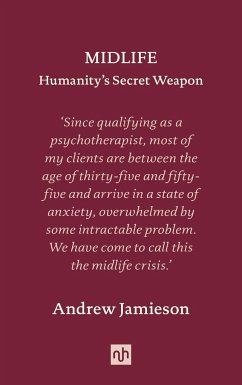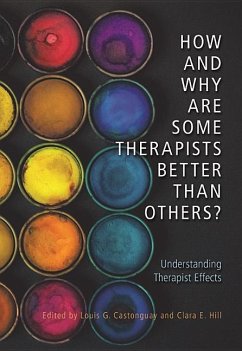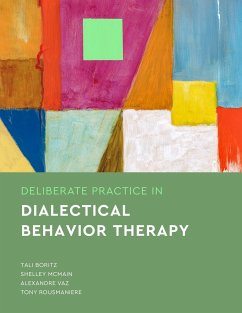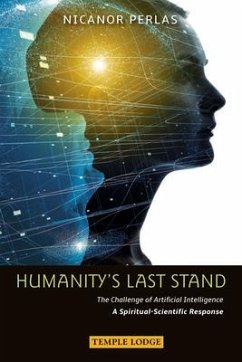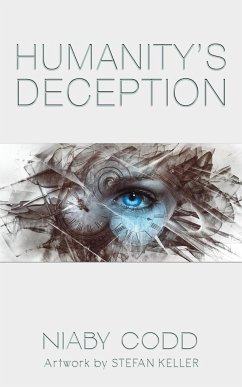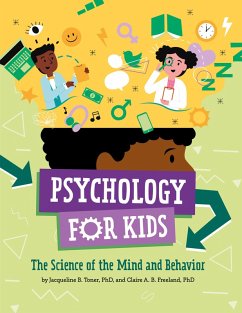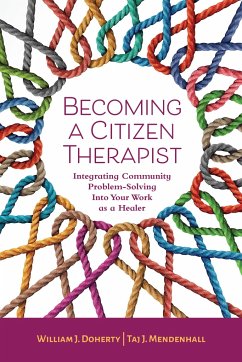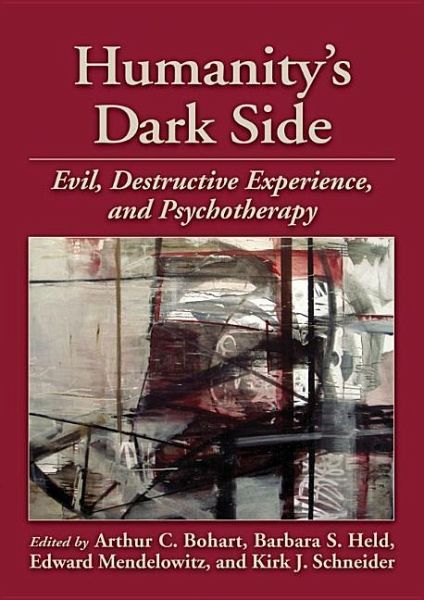
Humanity's Dark Side
Evil, Destructive Experience, and Psychotherapy
Herausgeber: Bohart, Arthur C; Schneider, Kirk J; Mendelowitz, Edward; Held, Barbara S
Versandkostenfrei!
Versandfertig in 2-4 Wochen

PAYBACK Punkte
44 °P sammeln!




Prominent voices in psychotherapy delve into how confronting humanityâ s dark side influences clinical practice. They debate whether nurturing growth requires addressing negativity and explore approaches for victims, perpetrators, and the ethical dilemmas that arise within therapeutic and social frameworks.
Arthur C. Bohart, PhD, is Professor Emeritus at California State University, Dominguez Hills. He is best known for his work on the client's role as an active self-healing agent in psychotherapy. He has published a number of chapters and articles on this theme, including the book How Clients Make Therapy Work: The Process of Active Self-Healing (with Karen Tallman 999). His earlier work focused on the role of empathy in psychotherapy (e.g., Empathy Reconsidered: New Directions in Psychotherapy , coedited with Leslie S. Greenberg 997). He coedited Constructive and Destructive Behavior: Implications for Family, School, and Society (with Deborah J. Stipek 2 ). He has also published a number of papers and chapters on psychotherapy integration. Barbara S. Held, PhD, is the Barry N. Wish Professor of Psychology and Social Studies at Bowdoin College in Brunswick, Maine. Her work focuses on the theoretical, philosophical, and practical aspects of movements in psychology and psychotherapy and the epistemology and ontology of human/mental kinds. She is the author of Back to Reality: A Critique of Postmodern Theory in Psychotherapy ( 995), in which she provides theoretical and philosophical analysis of the postmodern linguistic turn in psychotherapy, and of Psychology's Interpretive Turn: The Search for Truth and Agency in Theoretical and Philosophical Psychology (2 7), in which she examines recent hermeneutic, neopragmatic, and constructionist trends in the ontological and epistemological underpinnings of psychological inquiry. She was the 2 8 amp ndash 2 9 president of the Society for Theoretical and Philosophical Psychology (APA Division 24), of which she is a fellow. She is also the author of numerous scholarly articles and chapters and has served on the editorial board of several journals. Trained as a clinical psychologist, she practiced therapy for 5 years. In her popular book Stop Smiling, Start Kvetching: A 5-Step Guide to Creative Complaining (2 ) and in subsequent scholarly articles, she challenges what she calls the amp quot tyranny of the positive attitude in America amp quot and as a result has become a leading critic of the positive psychology movement. This work has led to extensive national and worldwide media attention, including features in The New York Times, People magazine, and Smithsonian magazine, as well as appearances on NBC's Today show, ABC's World News, National Public Radio's Talk of the Nation and All Things Considered, the BBC, and the CBC. She lives with her husband on the coast of Maine. Edward Mendelowitz, PhD, completed his doctoral studies at the California School of Professional Psychology, where he worked closely with Rollo May. He is on the board of editors for the Journal of Humanistic Psychology and is a contributor to some of the major compendiums of existential/humanistic/depth psychotherapy. He has presented numerous papers on psychology, psychotherapy, and their respective interrelations with the humanities in the United States, Europe, and, most recently, East Asia. His work resides on the gnostic frontiers of psychology in its eloquent blending of art, literature, music, cinema, religion, philosophy, and clinical narrative with the more recognizable fare of theory and scholarship. His collage-like Ethics and Lao-tzu was called amp quot an extraordinary moral narrative amp quot by Robert Coles and amp quot a remarkable book, a compendium of wisdom from an astonishing variety of sources amp quot by the late psychoanalyst Allen Wheelis. Dr. Mendelowitz is on the faculty of Saybrook Graduate School, is a lecturer at Tufts Medical Center, and Distinguished Visiting Professor at the University of the Rockies. He writes a quarterly online column, Humanitas, for the Society of Humanistic Psychology and lives and works in Boston. Kirk J. Schneider, PhD, is a leading spokesperson for contemporary existential amp ndash humanistic psychology. Dr. Schneider is current editor of the Journal of Humanistic Psychology, vice president of the Existential amp ndash Humanistic Institute, and adjunct faculty at Saybrook University and Teachers College of Columbia University. Dr. Schneider has published more than articles and chapters and has authored or edited eight books, including The Paradoxical Self: Toward an Understanding of Our Contradictory Nature ( 999) Horror and the Holy: Wisdom-Teachings of the Monster Tale ( 993) The Psychology of Existence: An Integrative, Clinical Perspective (with Rollo May 994) The Handbook of Humanistic Psychology: Leading Edges in Theory, Research, and Practice (with James F. T. Bugental and J. Fraser Pierson 2 2) Rediscovery of Awe: Splendor, Mystery and the Fluid Center of Life (2 4) Existential amp ndash Integrative Psychotherapy: Guideposts to the Core of Practice (2 7) Existential amp ndash Humanistic Therapy (with Orah T. Krug 2 9 accompanying APA video also available) and Awakening to Awe: Personal Stories of Profound Transformation (2 9). In April 2 , Dr. Schneider delivered the opening keynote address at the First International (East amp ndash West) Existential Psychology Conference in Nanjing, China.
Produktdetails
- Verlag: American Psychological Association
- Seitenzahl: 291
- Erscheinungstermin: 15. August 2012
- Englisch
- Abmessung: 259mm x 182mm x 32mm
- Gewicht: 716g
- ISBN-13: 9781433811814
- ISBN-10: 1433811812
- Artikelnr.: 35530907
Herstellerkennzeichnung
Libri GmbH
Europaallee 1
36244 Bad Hersfeld
gpsr@libri.de
Für dieses Produkt wurde noch keine Bewertung abgegeben. Wir würden uns sehr freuen, wenn du die erste Bewertung schreibst!
Eine Bewertung schreiben
Eine Bewertung schreiben
Andere Kunden interessierten sich für


